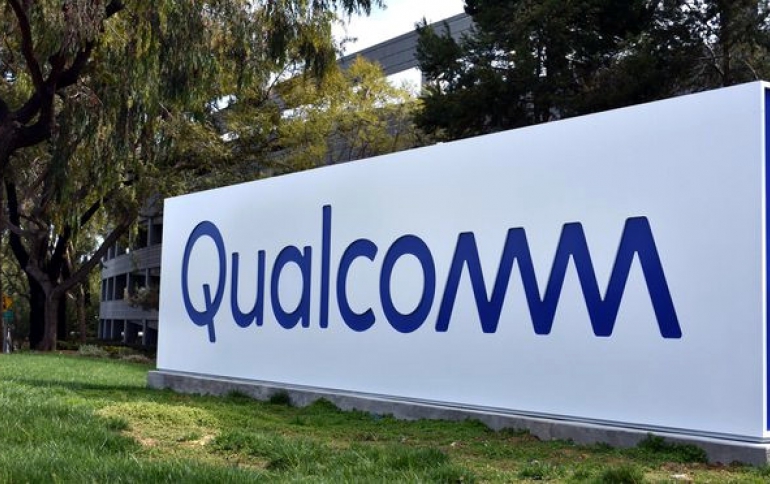
Qualcomm Faces Apple In Critical San Diego Legal Battle
An Apple jury trial against Qualcomm will kick off on Monday in San Diego, with the chip supplier to face an existential attack.
Apple and its allies (Foxconn, Compal Electronics Inc., Pegatron Corp. and Wistron Corp.) are alleging that Qualcomm engaged in illegal patent licensing practices and seeking up to $27 billion in damages.
Qualcomm alleges that Apple forced its longtime business partners to quit paying some royalties and is seeking up to $15 billion.
Filed by Apple in early 2017, the lawsuit in federal court revolves around the modem chips used in Apple's iPhones and Apple Watches.
Apple is seeking for an outlocme that would allow buying modems for its products without having to pay "extra" patent licensing fees to Qualcomm that take a cut of the selling price of its devices.
Qualcomm requires device makers to sign a license to its patents before it will supply chips, which it views as a commonsense measure to ensure it does not do business with companies violating its patents. Apple and other device makers claim that Qualcomm is charging for the same intellectual property once during licensing discussions, and then again in the price of the chips where the patents are embodied. Qualcomm has been grabbing as much as 5 percent of the net selling price of every smartphone sold.
Apple and allies are asking for an end to that practice and a refund of about $9 billion - an amount that could be tripled if a jury finds in Apple’s favor for antitrust allegations - for contract factories such as Foxconn, who paid the royalties and were reimbursed by Apple. Apple alleges the practices kept rivals like Intel out of the market for years.
The trial is critical for Qualcomm, which generates most profits profits from licensing chip technology. The company argue sthat it had been working successfully with contract factories for years before Apple introduced its iPhone. The company accuses Apple that it forced those factories break their contracts with Qualcomm, depriving it of at least $7 billion in royalties it was due.
In short, the federal jury will decide if Qualcomm’s business model is legal and whether Apple had the right to stop paying royalties for the technology.
The case is In re: Qualcomm litigation, 17-cv-00108, U.S. District Court, Southern District of California (San Diego).
Apple, with roughly $245 billion in cash, can afford a possible fine, which could lead to a settlement with Qualcomm. But a loss for Qualcomm risks the company's entire business model.
Over the next year, 5G will expand across the U.S.’s major carriers into more areas, enabling faster internet speeds. The problem for Apple is that Qualcomm is currently the market leader in 5G modem technology, and Intel, its current supplier for 4G chips, won’t have 5G modems on the market until next year.
Sorting out the issues with Qualcomm could help Apple bring 5G devices to the market more quickly than it would be able to otherwise.





















